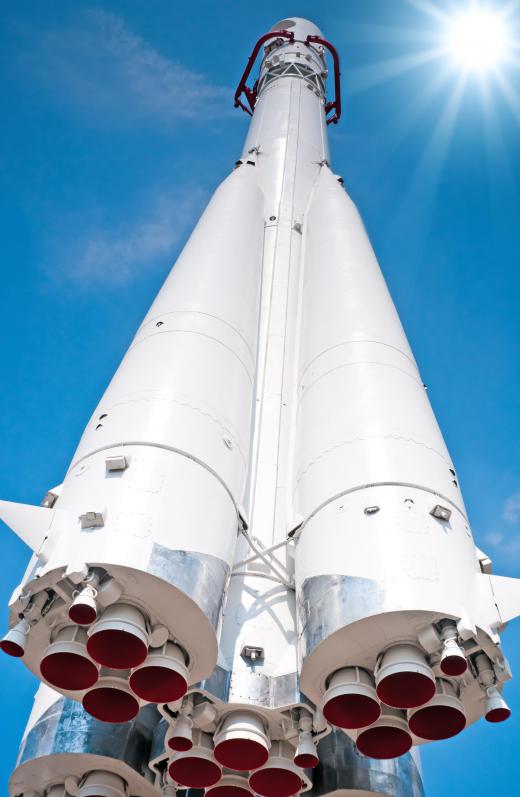The word "rocket" can be used to refer to a couple of different objects. It can be a type of flying vehicle used by astronauts, space explorers, and even unmanned space flights. Others are used as weapons, fired by anything from tanks to airplanes. A model rocket is a small toy used by hobbyists to propel fireworks or to practice direct air launching.
No matter the type, there is always a propellant or chemical reaction used to set the rocket in motion. This propellant can be gasoline or more complex mixes such as liquid oxygen and liquid hydrogen, although they sometimes use other propulsion systems to get into the air. This device is the main way that spacecraft get into orbit as well, and without one, it would be impossible for artificial satellites, space vehicles, and interplanetary probes to have enough thrust to leave Earth, reach space, and then establish a flight pattern.

The difference between the type used as a weapon and those used in spacecraft is mainly in the construction. Those used to propel items into space have a strong but short thrust, as their only function is to get the vehicle out of the atmosphere; once there, the rockets are then separated from the main body and abandoned. Weapons, on the other hand, need to maintain a long trajectory, so staying power is more important than explosive power.

The earliest form of a rocket was used for firework displays in China and India. There are written accounts of the Han Dynasty using them as far back as 206 BC, but it wasn't until 1379 AD that the Italians developed an early form of a firecracker. From then on, all rockets created were designed with either weaponry or display in mind.
Russian mathematician Konstantin Tsiolkovsky was the first to suggest the use of rockets for space travel. Tsiolkovsky was a visionary who had his eyes on space as early as 1903. By the mid-1920s, Germany had taken a serious interest in rocket science, and it took the leading spot in their research and use.
